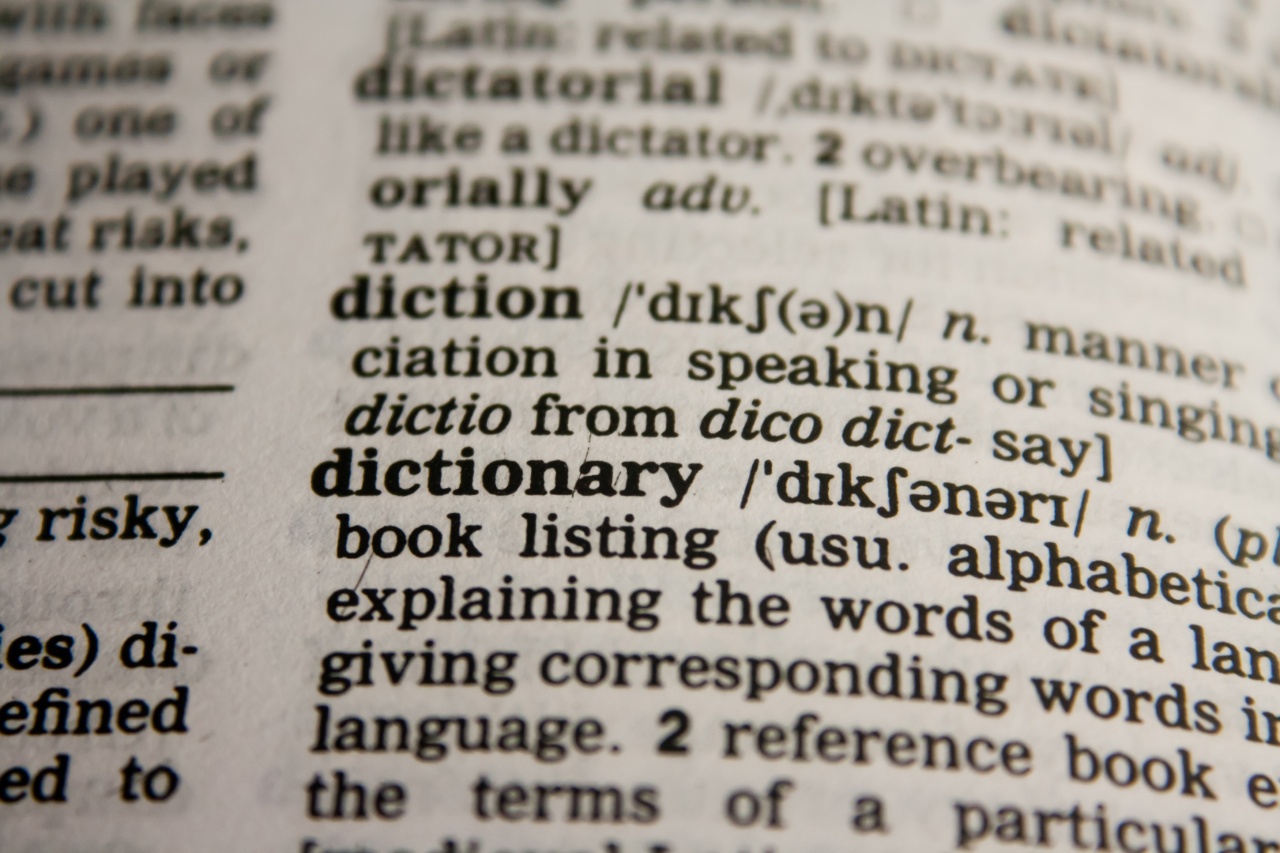Dementia is a complex condition that affects millions of individuals worldwide. As it progresses, dementia often presents with various symptoms, including speech changes.
These alterations in language can be challenging to decipher, but they offer valuable insights into the underlying cognitive function and overall well-being of individuals with dementia. To better understand the language of dementia, it is crucial to recognize the potential meanings behind these speech changes.
1. Word-finding Difficulties
One common speech change in individuals with dementia is the difficulty in finding and retrieving words. This phenomenon, known as anomia, often manifests through pauses, hesitation, and substitution of words.
Anomia can indicate the progressive decline in semantic memory, which refers to the knowledge of word meanings and concepts. Furthermore, it can suggest impairments in executive functions involved in language retrieval and organization.
2. Circumlocution
Individuals with dementia may adopt a circumlocutory style of speech, where they use more words and phrases to express a particular idea or convey their message. This compensatory strategy allows them to work around their word-finding difficulties.
Although circumlocution may prolong conversations, it demonstrates the resilience and adaptive nature of individuals with dementia in trying to maintain effective communication.
3. Repetition
Repetition is another speech change commonly observed in individuals with dementia. They may repeat words, phrases, or even entire sentences multiple times during a conversation. This repetition, called echolalia, can serve different purposes.
It may reflect memory deficits or difficulties in maintaining comprehension, but it can also be a result of anxiety or a desire to seek confirmation from the listener.
4. Semantic Paraphasia
Semantic paraphasia refers to the substitution of a word with another that is related in meaning but not identical.
For example, an individual with dementia might say “spoon” instead of “fork.” This speech change indicates impairments in semantic memory, as individuals may struggle to retrieve the precise words they intend to use. Semantic paraphasia can be frustrating for both individuals with dementia and their communication partners, but patience and understanding are crucial in maintaining effective conversation.
5. Reduced Vocabulary
Individuals with dementia may gradually experience a decline in vocabulary. They might simplify their speech by using more general or vague terms instead of specific words.
This reduction in vocabulary can stem from the progressive deterioration of word knowledge and semantic memory. It is essential for communication partners to adjust their expectations and refrain from correcting or pressuring individuals with dementia, as this can lead to frustration and further withdrawal from social interaction.
6. Difficulty in Grasping Abstract Concepts
As dementia progresses, individuals may encounter difficulty in understanding and discussing abstract concepts. They may struggle with metaphors, similes, and other figurative language devices.
Concrete language without abstract expressions becomes more accessible for individuals with dementia. Their comprehension of complex ideas may be impaired, impacting their ability to engage in deep conversations.
7. Verbal Agitation and Aggression
Speech changes in dementia can sometimes manifest as verbal agitation and aggression. Individuals may express frustration, confusion, or anxiety through increased vocalizations, cursing, or even shouting.
Verbal aggression often occurs due to the frustration of being unable to communicate effectively, which can cause distress and disrupt social interactions. Addressing the underlying causes of verbal aggression, such as pain or discomfort, is crucial to improving communication and reducing agitation.
8. Loss of Coherence and Logic
Individuals with dementia may exhibit a loss of coherence and logic in their speech. They may struggle to maintain a topic or provide a clear narrative. Sentences may become fragmented or lack proper grammar.
This speech change reflects the decline in higher-order cognitive skills required for organizing thoughts and expressing them coherently. Engaging in patient and supportive conversation can help individuals with dementia feel heard and understood.
9. Evasion and Withdrawal
Another speech change associated with dementia is evasion and withdrawal from communication. Individuals may avoid conversations or provide vague responses to questions.
Fear of making mistakes or feeling overwhelmed by the demands of communication can lead to social isolation and reduced engagement. Creating a supportive and comfortable environment that encourages participation can help individuals feel more confident and willing to communicate.
10. Emotional Content
Lastly, individuals with dementia often communicate through emotional content rather than relying solely on words.
As their ability to use language declines, they may rely on facial expressions, tone of voice, and gestures to convey their emotions and needs. It is crucial for communication partners to pay attention to non-verbal cues and respond empathetically to ensure effective communication and promote emotional well-being.






























